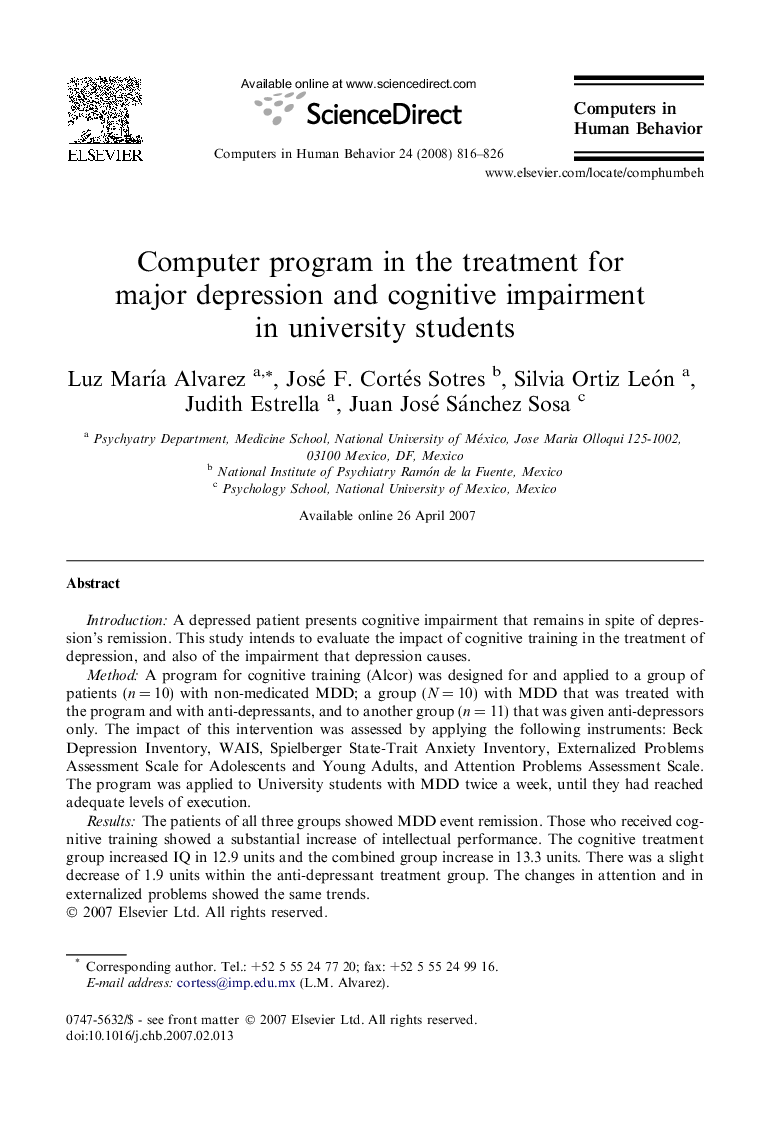| Article ID | Journal | Published Year | Pages | File Type |
|---|---|---|---|---|
| 351680 | Computers in Human Behavior | 2008 | 11 Pages |
IntroductionA depressed patient presents cognitive impairment that remains in spite of depression’s remission. This study intends to evaluate the impact of cognitive training in the treatment of depression, and also of the impairment that depression causes.MethodA program for cognitive training (Alcor) was designed for and applied to a group of patients (n = 10) with non-medicated MDD; a group (N = 10) with MDD that was treated with the program and with anti-depressants, and to another group (n = 11) that was given anti-depressors only. The impact of this intervention was assessed by applying the following instruments: Beck Depression Inventory, WAIS, Spielberger State-Trait Anxiety Inventory, Externalized Problems Assessment Scale for Adolescents and Young Adults, and Attention Problems Assessment Scale. The program was applied to University students with MDD twice a week, until they had reached adequate levels of execution.ResultsThe patients of all three groups showed MDD event remission. Those who received cognitive training showed a substantial increase of intellectual performance. The cognitive treatment group increased IQ in 12.9 units and the combined group increase in 13.3 units. There was a slight decrease of 1.9 units within the anti-depressant treatment group. The changes in attention and in externalized problems showed the same trends.
